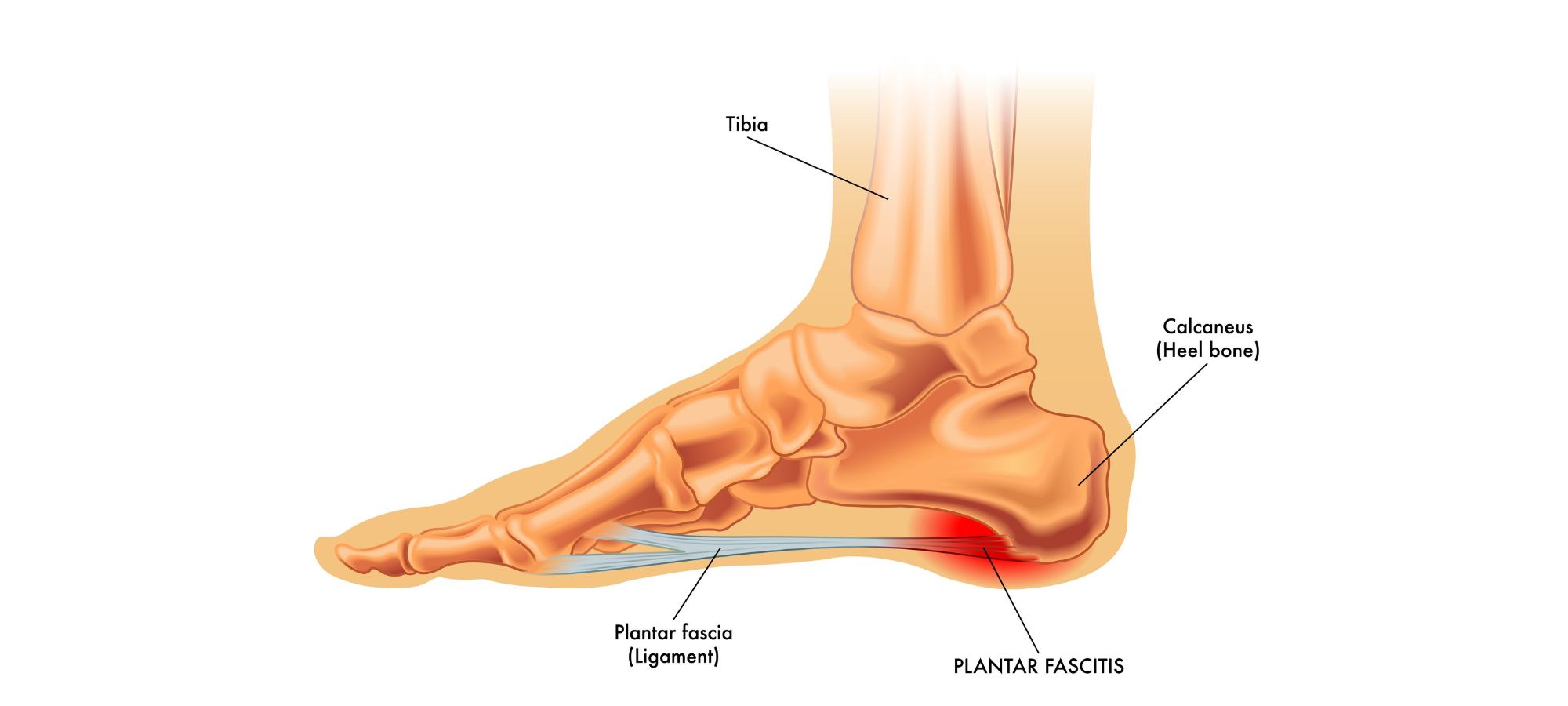Stepping into Comfort: The Role of Arch Support in Plantar Fasciitis Management
Plantar fasciitis, a common and often debilitating foot condition, affects millions of individuals worldwide. Characterized by inflammation of the plantar fascia, a thick band of tissue that runs across the bottom of your foot to your heel bone, plantar fasciitis can lead to intense heel pain and discomfort.
While there are various treatment options available, this blog will delve into the evidence supporting the use of orthotics and insoles, especially those providing arch support, in both the care and prevention of plantar fasciitis-type foot pain.
Understanding Plantar Fasciitis
Before exploring the role of orthotics and insoles, it’s crucial to understand the factors contributing to pain from plantar fasciitis. The condition is often associated with overuse, improper footwear, high-impact activities, and biomechanical issues. Excessive stress on the plantar fascia can lead to microtears, inflammation, and, ultimately, pain.
The Role of Orthotics and Insoles
Orthotics, custom-designed or over-the-counter insoles, are widely used in the management of plantar fasciitis. Here’s a comprehensive breakdown of how orthotics and insoles, providing crucial arch support, can be beneficial for those suffering from plantar fasciitis:
1. Shock Absorption with Insoles
Plantar fasciitis pain is often exacerbated by the impact of daily activities. Insoles, especially those designed for shock absorption, provide an additional layer of cushioning, reducing the strain on the plantar fascia. A study published in the “Journal of Foot and Ankle Research” (2014) found that insole inserts significantly reduced plantar pressure, offering a potential mechanism for pain relief.
2. Biomechanical Support with Orthotics
Biomechanical abnormalities, such as overpronation or high arches, are common contributors to plantar fasciitis. Orthotics are designed to correct or accommodate these issues, providing much-needed support and stability. A systematic review in the “British Journal of Sports Medicine” (2019) concluded that orthotics, particularly those correcting foot pronation, were effective in reducing pain and improving function in individuals with plantar fasciitis.
3. Clinical Studies on Orthotics
The efficacy of orthotics in plantar fasciitis management is supported by numerous clinical studies. One randomized controlled trial published in “The American Journal of Sports Medicine” (2018) demonstrated that custom foot orthoses were more effective than prefabricated insoles in reducing pain and improving function.
4. Long-term Benefits of Arch Support
Insoles providing arch support are not merely a temporary solution for symptom relief; they can play a crucial role in preventing the recurrence of plantar fasciitis. A prospective study in the “Journal of the American Podiatric Medical Association” (2019) found that individuals using custom orthotics with arch support experienced a lower recurrence rate compared to those using generic insoles.
5. Patient Satisfaction with Orthotics and Insoles
Beyond the scientific evidence, patient satisfaction is a critical aspect of any treatment. Many individuals with plantar fasciitis report significant relief and improved functionality with the use of orthotics and insoles, especially when tailored to provide essential arch support.
6. Complementary Approach with Sandals
Orthotic sandals can be a comfortable and supportive choice, providing arch support outside of traditional shoes. Choosing sandals designed with proper arch support can complement the benefits of insoles and orthotics, especially in warmer seasons.
Conclusion
From the shock-absorbing prowess of insoles to the biomechanical support offered by orthotics, each component contributes to alleviating the burden on the plantar fascia. The comprehensive approach they bring to the table extends beyond mere symptom relief, addressing the root causes and providing a foundation for long-term well-being.
Book an appointment with our resident chiropractor and orthotics specialist, Dr. Kevin Sommerfeldt, at South Island Physiotherapy. He would happily answer any further questions and “walk” you through the process!
—-
FAQ about Orthotics, Insoles, and Plantar Fasciitis
1. How do insoles with arch support help alleviate plantar fasciitis pain?
Insoles with arch support provide an additional layer of cushioning and stability, reducing the strain on the plantar fascia during daily activities. This can significantly alleviate heel pain associated with plantar fasciitis.
2. Can I use over-the-counter insoles for my high arches?
Yes, over-the-counter insoles designed for high arches can provide effective support. However, individuals with specific biomechanical issues may benefit from custom-designed orthotics tailored to their unique foot structure.
3. How long does it take to experience relief with orthotics and arch-supporting insoles?
The timeline for experiencing relief varies, but consistent use of orthotics and insoles, coupled with a comprehensive treatment plan, enhances the likelihood of positive outcomes. Relief can be noticed within a few weeks for some individuals.
4. Can orthotics and insoles prevent the recurrence of plantar fasciitis?
Yes, both orthotics and insoles, especially those providing arch support, can play a role in preventing the recurrence of plantar fasciitis. Proper support helps maintain the health of the plantar fascia and reduces the likelihood of future issues.
5. Can I use orthotic sandals for plantar fasciitis?
Yes, orthotic sandals with proper arch support can be a comfortable and supportive choice, especially in warmer weather. These sandals complement the benefits of insoles and orthotics, providing continuous support.
6. Do I need a prescription for arch-supporting insoles, or can I use over-the-counter options?
Over-the-counter insoles with arch support can be effective for individuals with mild symptoms or general arch support needs. However, for more complex cases requiring personalized adjustments, a healthcare professional may recommend custom-designed orthotics.
7. Can I continue my regular physical activities while using orthotics and insoles?
In most cases, yes. Orthotics and insoles are designed to support the foot during various activities. However, it’s advisable to consult with a healthcare professional to ensure that your chosen activities are compatible with your specific condition and orthotic prescription.
8. How often should I replace my orthotics and insoles?
The lifespan of orthotics and insoles varies depending on factors such as usage, the severity of the condition, and the quality of the devices. Generally, custom-designed orthotics may last longer than over-the-counter options due to the quality of materials used. It’s advisable to follow the manufacturer’s recommendations and consult with a healthcare professional for periodic assessments.

